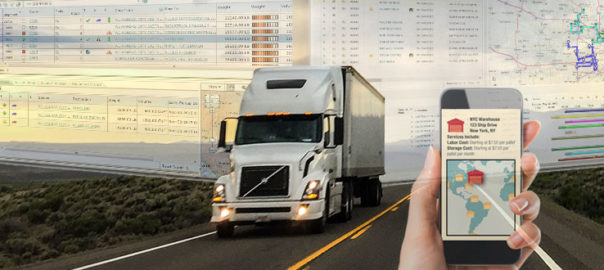If you want your firm to be successful, you need a logistics management system. For a seamless supply chain operation, it comprises careful product control both leaving and entering your business premises.

Our top reasons for incorporating LMS into your supply chain management are as follows.
1. Improved Customer Support
A good logistics management system can help businesses provide better services to their clients. The technology enables your company to aim for faster delivery times and better customer service for everyone who buys your products.
2. An effective management strategy
Customers expect greater service, which necessitates logistics managers providing prompt, precise, and high-quality help. A strong management strategy aims to constantly improve transportation measures and eliminate disruptions.
Along these lines, it has a direct impact on your customers’ needs. Improved customer service can have a direct impact on a company’s image and lead to increased sales. The better the freight flow, the more benefits you may provide to your clients.
3. Tracking and customer service
Logistics management is a critical component of completing an organization’s tasks and has a direct impact on its main focus. Furthermore, one of the primary goals of logistics management is to meet the needs of customers and provide assistance.
4. Prompt services
Customers nowadays expect extremely fast delivery. They don’t just ask for it; they believe these administrations to be an essential element of every request they make. I
It is a true test for businesses to adapt their tasks to meet the needs of customers. This is the location.
Any barrier between order management and distribution centre management systems will be overcome by TMS. It will assist in the coordination of all customer orders in order to find the most cost-effective transporter.
5. A competitive advantage
Managing your clientele provides you a competitive advantage. Customers require better assistance, and you must communicate this to them. To meet clients’ needs, you must ensure that goods and items arrive on time and that products are delivered as quickly as possible.
6. Greater Openness
One of the most serious problems in supply chain and logistics management is data mismanagement. One of the benefits of a logistics management system (LMS) is increased transparency throughout your supply chain.
It can help your company understand what’s happening at each stage of the supply chain and examine logistics operations to see how everything works. You can evaluate data and examine ongoing events to gain insight into how things could be improved and how to avoid problems.
7. Increase efficiency while lowering costs
Whether you’re managing logistics within a country or running an international freight forwarding company, good management may help you increase efficiency and cut expenses.
8. Expertise
An LMS can help your supply chain run more smoothly by allowing you to see where you’re not performing well or which aspects don’t require much effort.
9. Cost-cutting techniques
By keeping an eye on how everything is managed, you can spot cost-cutting strategies and maintain your costs down. With an LMS, you can manage and regulate local and international cargo, whether it’s inbound or outbound, for greater efficiency and cost savings.
10. Financial viability
A Logistics Management System can help you increase your revenue. Customers want prompt and accurate support from a company that follows through on its promises. You can attract more customers if your company provides excellent customer service.
Improve the image of your organization by:
- Making good on your promises
- Not disappointing a customer.
- You may do more with your time if you are more efficient, allowing your company to handle more orders.
11. Profitability Level
The right Warehouse Management System can enhance your sales and profits not just by allowing you to sell more, but also by allowing you to sell faster and more precisely to happier clients.
Furthermore, your current workforce can select and obtain more items in less time, with fewer errors. This precision reduces consumer orders while while improving customer service.
12. Instant gratification and TMS
The need for strong logistics management develops as freight volume grows and transportation gets more complex. Logistics management is a critical component of every organization’s supply chain operation’s performance.
13. System for Transportation Management
Traditional on-premise to network TMS solutions are among the many types of TMS solutions available. The right TMS can improve your key operations and change the way your company operates.
14. Gratification Immediately
The current customer has internalised the concept of immediate pleasure. Whatever the customer requires, it must be readily available, and it must be available immediately. The need for an efficient Transportation Management System (TMS) has become imperative as a result of the Amazon Effect.
15. More efficiency and less paperwork
Automation of all processes via TMS and WMS minimises bulk paper, which not only saves money but also saves time. Nonetheless, the risks of human errors are greatly decreased. This enables us to examine large amounts of data in a couple of seconds.
16. Cost-cutting and increased visibility
Visibility into an organization’s supply chain has become vital in the modern world. Advanced TMS examines data and keeps track of product movement in real time.
This data can be used by logistics managers to optimize processes and minimize roadblocks. TMS enables a business to function efficiently while also gaining operational knowledge.
Managing logistics effectively can help you:
- grant a company control over inbound cargo maintain optimal stock levels
- Manage reverse logistics, and move cargo using the most efficient routes of transportation
- All of these things contribute to a company’s overall cost reduction.
Follow-up on orders and returns
Modern Transport Management Systems can provide visibility across the whole supply chain. Having complete operational insight and access to real-time data is a major plus. It gives management the ability to respond quickly to any changes or difficulties that arise.
18. Integrated Planning and Implementation
The Transport Management System integrates seamlessly with existing systems for managing the transportation fleet’s requirements. Among them are:
- Systems for purchasing and managing orders
- Customer Relationship Management Distribution Center Management
- Management of Supplier Relationships
The firm can use the integration of these systems to execute orders in the most cost-effective way possible. Order planning and execution will be more efficient.
19. Fuel Cost Savings
A strong Transportation Management software can help a company save money on shipping. The right framework may examine the financial implications of each computed route and make user-friendly recommendations for the most fuel-efficient path.
20. Inventory Control
TMS allows businesses to monitor the flow of orders and shipments in real time and receive status updates on each. This provides clients with an exact stock figure and increases the supply chain organization’s response.
21. Inventory Management
Inventory management is improved by using a Warehouse Management System.
- Inventory levels are being reduced
- Improving order fulfilment
- Order processing time will be reduced
WMS allows you to handle the smallest of requirements for increased order satisfaction and inventory correctness. It is designed to control the entirety of your distribution center’s activities.
Related Article: What is TMS and How Does a Transportation Management System Work?
